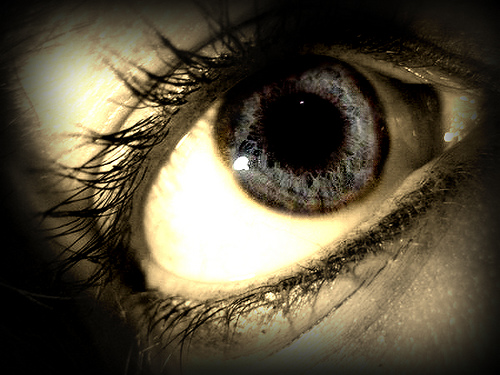New skills for seeing
Many people who have sight loss due to macular degeneration may be unaware that they can learn new skills for making the most of the sight they still have ?
“New Skills for seeing ” is the service offered by the Macular Society and can help with reading, watching television and going out and about.
Each person will be affected differently with macular degeneration which attacks the macula which is the center of the retina at the back of the eye.
Depending on where the damage occurs and to what extent will determine how an individual can learn to use the undamaged part of their vision more effectively.
People who have learned these skill often remark that they feel more confident as they have more control over life.
Eccentric Viewing.
This unusually named technique involves finding and using the remaining and healthy parts of the macular. If someone has lost their central vision it will be what is known as a non-central or “eccentric part”.
We all use different part of our vision to do different things. We use a different part of sight to walk around than we do to read.
The Macular society say that working with a coach skilled in eccentric viewing techniques can help identify which parts of the remaining vision work best for each task. In time this becomes automatic.
Steady Eye strategy
This is a technique for reading.
The normal technique for reading involves our eyes moving along the page from left to right, however this scanning movement is no longer available if central vision has been lost. The damaged macular simply blocks out the words.
The steady eye strategy involves keeping the eye still and moving the page from right to left across the best part of the vision. This is harder to learn than eccentric viewing as it needs to be a conscious thought to overcome the automatic scanning reflex.
People who have no central vision at all are also able to use a combination of the two techniques to be able to read and good lighting and the right sort of magnification can also help.
Does it always work ?
Learning and using new skills for seeing don’t work for every one. It does depend on where and to what extent the damage to the macula is and on how prepared someone is to practice the skills. The skills also work best for those who have both eyes affected.
Where to find help.
Training is provided by some eye health and social care professionals including local societies for the visual impaired, opticians, optometrists and rehabilitation officers.
The Macular Society’s Re-Vision programme also has volunteer trainers who offer the training for free.
The Society are keen to remind people that
Losing central vision needn’t mean losing control of your life.
For more help and information call 03003030 111 Monday-Friday 9 am-5 pm.


